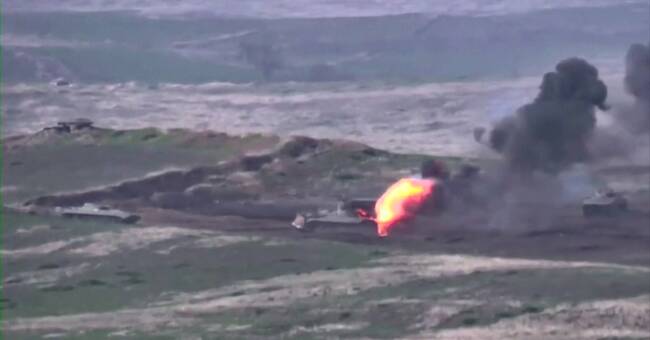The fighting, which broke out on Sunday, has once again focused on the unstable situation in the areas around the Caucasus mountain range, which serves as a corridor for oil and gas pipelines from the Caspian Sea.
Both sides, which have been in conflict since the time of the First World War and fought a war in the early 1990s, have reported casualties.
Armenia and Nagorno-Karabakh, located in Azerbaijan but controlled by ethnic Armenians, have activated their martial law and begun mobilizing their male residents, Reuters reports.
Accuse each other
Armenia accuses Azerbaijan of carrying out an attack in Nagorno-Karabakh, an attack which, according to Armenian human rights activists, killed a woman and her children.
Armenia also states that Azerbaijani forces have attacked civilian targets, including the capital Stepanakert, and promises a "proportional response".
"We stand strong next to our army to defend our motherland from an Azerbaijani invasion," Prime Minister Nikol Pashinyan wrote on Twitter.
Azerbaijan says it has responded to artillery fire from Armenia, which is accused of staging deliberate and targeted attacks on the country that have killed a number of civilians.
"We are defending our territory, our cause is right," said President Ilham Aliyev in a speech to the nation.
Today's battles are the most violent since April 2016 when the conflict last flared up, something that required at least 200 lives.
Important oil and gas corridor
The area around Nagorno-Karabakh, located south of the Caucasus mountain range between the Black and Caspian Seas on the border between Europe and Asia, serves as an important corridor for Caspian oil pipelines and natural gas pipelines from Azerbaijan to the rest of the world.
Armenia warned in July of the security situation in the area after Azerbaijan threatened to attack Armenian nuclear power plants.

